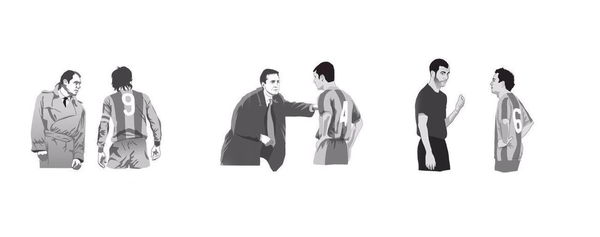 25/04 - 20:00
25/04 - 20:00

At 27-years-old, lifelong Barcelona stalwart Carles Puyol hadn’t won a trophy.
Barcelona, undoubtedly one of the world’s most intensely followed sporting institutions, were a mess, and the pressure was inescapable, even when Puyol and his Catalan cohorts went away with the national team, their ‘Golden Generation’ failed at every hurdle.
Puyol went on to retire with 20 trophies, his friend and academy graduate, Xavi Hernández, 28. What happened in between was the emergence of the most dominant club and international sides football has ever seen.
What began with Frank Rijkaard and Luis Aragones, ended with Luis Enrique and Vicente Del Bosque, the one constant between seven coaches creating two dynasties was in the middle of the park, passing and moving, with every other player on a string.
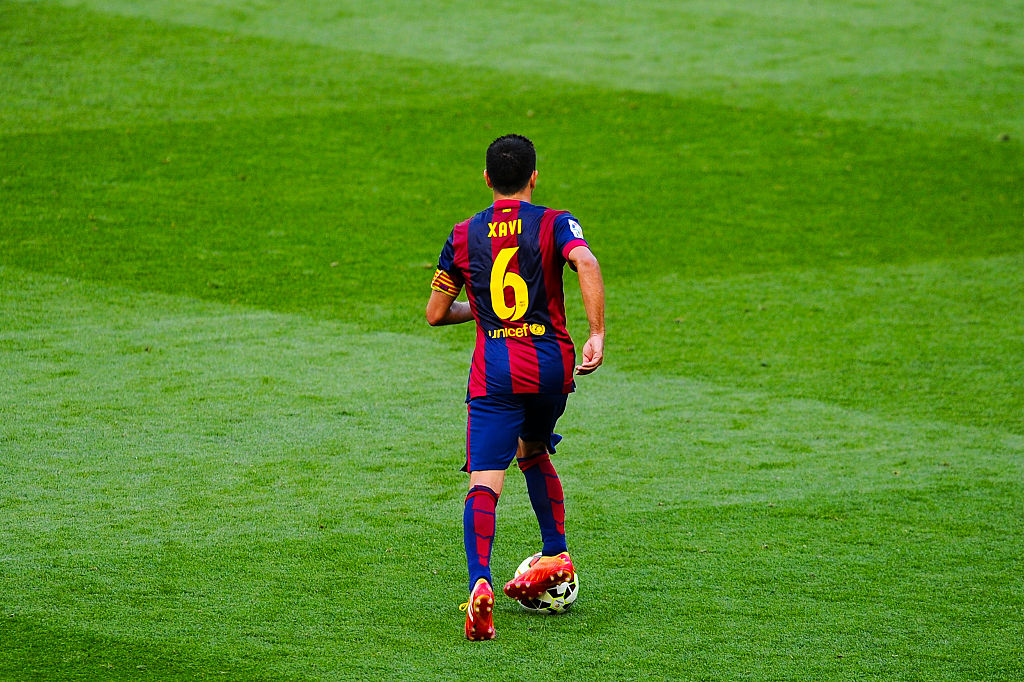
“If we analyse football as a collective sport he is the most influential player I have ever seen," said former Spanish international Joseba Etxeberria, "Others can move their team, but I have only ever seen one player, and that’s him, who can move all 22 players on the pitch as he wishes, to his rhythm.”
It may have taken Xavi a while to make the team his own before the 2006 Champions League win kicked things off, but it was cemented in 2009, when Pep Guardiola was reduced to tears with his Barcelona side adding the Club World Cup to make it an impossible six trophies in a season. With Enrique, they all but equalled club football's greatest feat in Xavi’s final year, since then they haven’t even been close.
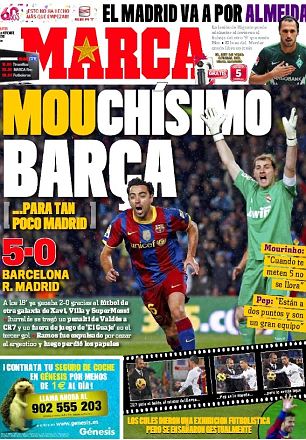
Xavi, like always, started it. He opened the scoring 10 minutes in before Lionel Messi and David Villa took over, but Xavi’s celebration was the enduring image. The sheer dominance meant the five goals were a formality and weren’t the headline, it was Madrid not getting a sniff of possession, completely dominated by the diminutive Spaniard reaching the pinnacle of footballing perfection.
The following spring Barcelona would add to their title, by humiliating Manchester United 3-1 in the Champions League final at Wembley, Xavi playing some of his idols off the park for the second time in three years, United, like Madrid, unable to touch the ball.
Months before these club feats were achieved, the foundations were set, as Spain, football’s undoubted perennial underachievers, conceded not a single goal in the knockout stages of a World Cup for the first time in the competition’s history.
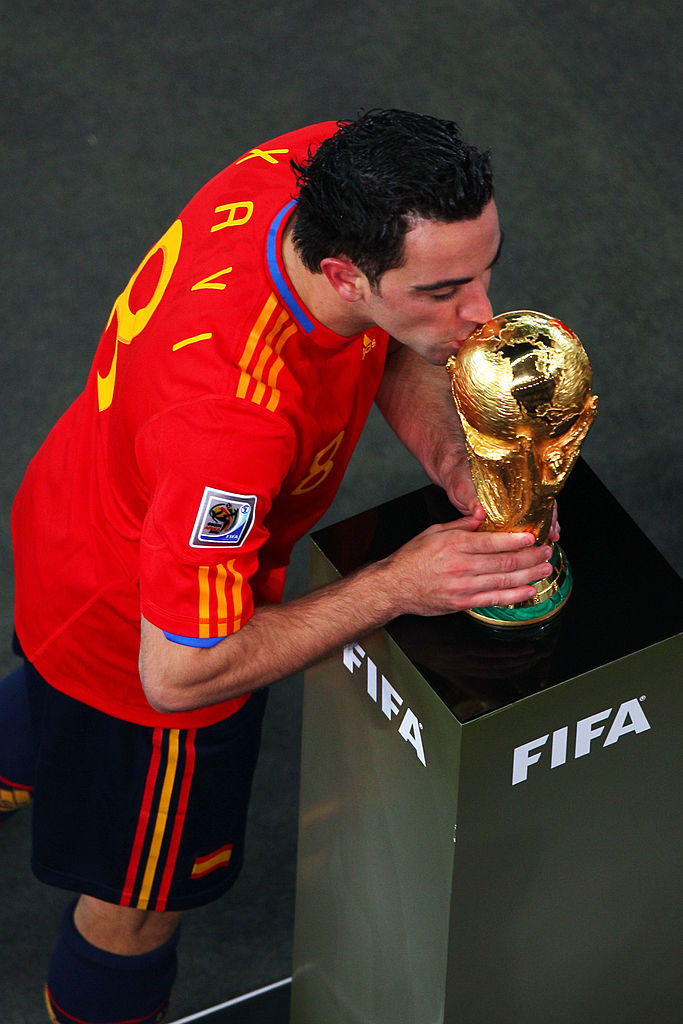
“That's what I do; look for spaces,” said Xavi. “All day. I'm always looking. All day, all day. People who haven't played don't always realise how hard that is. Space, space, space. It's like being on the PlayStation. I think shit, the defender's here, play it there. I see the space and pass. That's what I do.”
The PlayStation analogy has been used a lot over the recent years, from Neymar to Phil Jones, but for Xavi it couldn’t be more fitting. 22 players on the pitch, yet he has the overview and understanding of space that made everything work time and time again, seeing Barcelona and Spain go from underachievers to the best at the sport. “Xavi plays in the future,” said Dani Alves.
Yet even before Spain’s unprecedented dominance began in 2008, Xavi was hard at work off the pitch mending ties between Madrid and Barcelona with rival captain Iker Casillas, before having to do so again in 2012 due to Mourinho and Guardiola induced tensions. Making Spain replicate Barcelona wasn’t as simple as using his organisational skills on the pitch, he had to work off it. His friendship with Casillas lives on to this day, and so does their legacy.
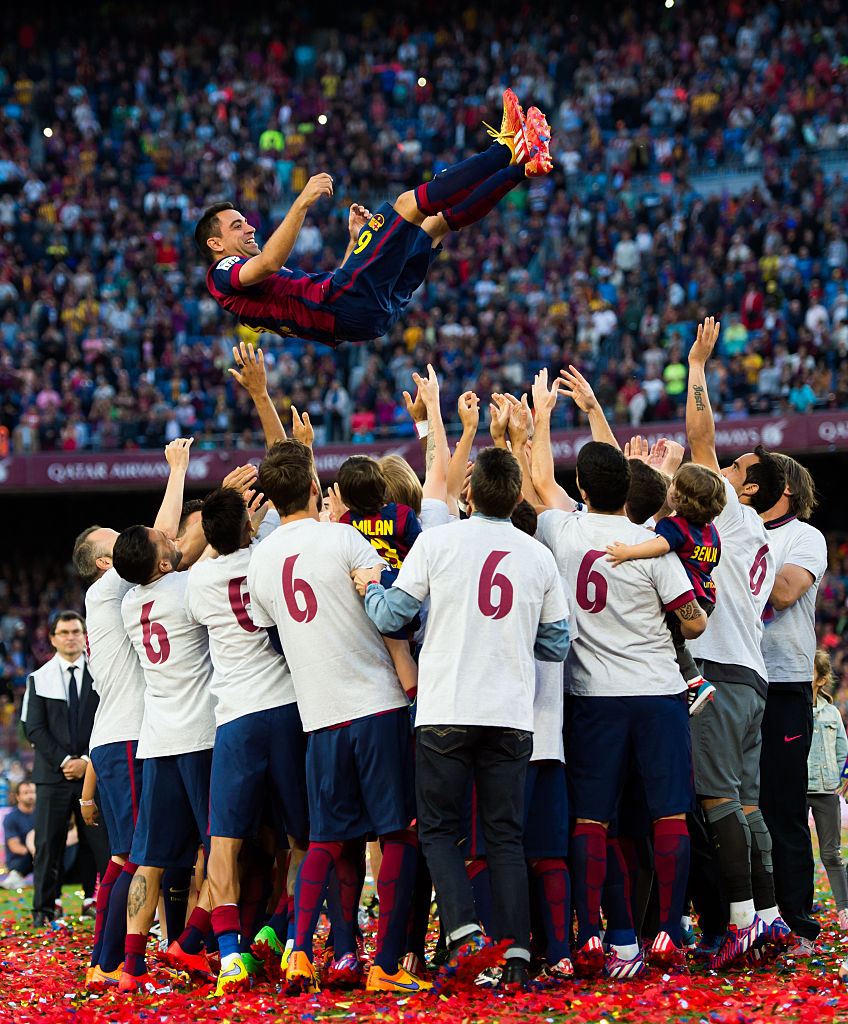
And boy was he right. Since leaving with a treble in 2015, Barcelona have yet to return to the Champions League final, their Holy Grail, despite the player who’s widely considered the greatest of all time, Lionel Messi, guaranteeing it.
Even the sublime artist Andres Iniesta struggled without the conductor beside him. Barcelona have still won three league titles in four years, but the identity is gone, the standard setting is gone, and the ‘After Xavi’ world of football lacks both substance and style.
Under Ernesto Valverde, Barcelona became just another big club, spending obscene amounts of money to try and reach the top as identiry departed, and Messi-dependence reigned. All the while an extraordinary, but characterless, Real Madrid took over European football.
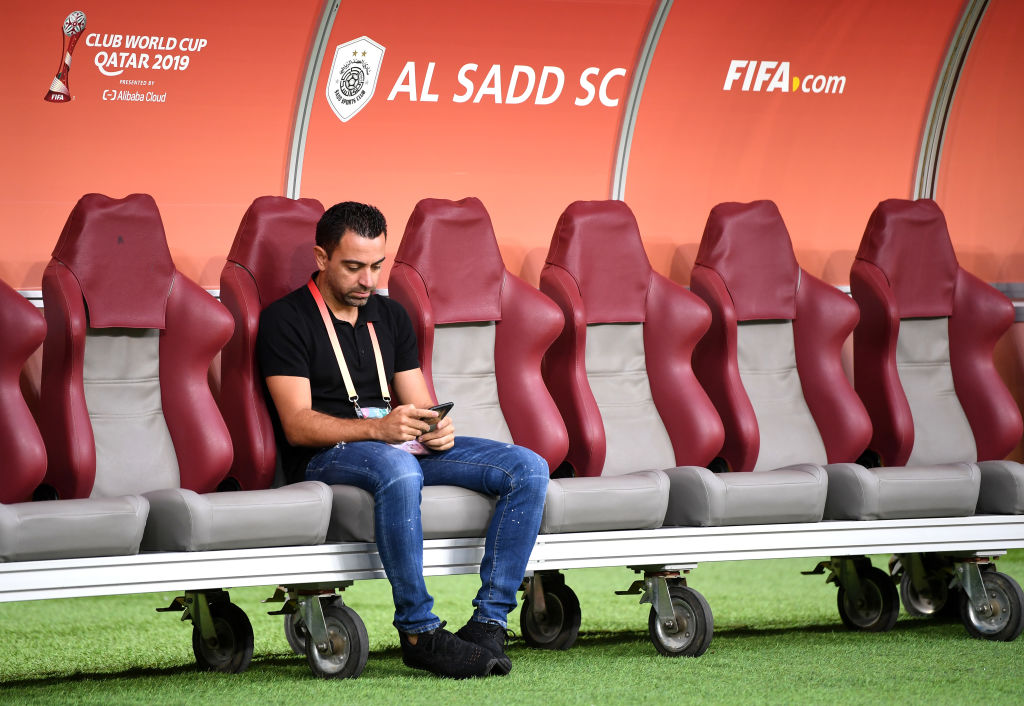
There’s a lot of nebulous words in sport, starting with the likes of ‘world class’ and ‘legendary.’ Greatness too is up for debate. One thing we know for sure though, is that it’s not just about numbers, otherwise Dani Alves’ 41 trophies would have him at the top, and Pele’s goals would put him ahead of Ronaldo and Messi.
But when it comes to changing the game, moving it forward, and dominating it; being the key figure in the two greatest dynasties domestic and international football has ever seen, makes Xavi Hernandez the greatest footballer to ever play the game.
Barcelona fans will be hoping the circle soon completes itself and their hero comes back as a coach to rescue them. Their identity could resume its hold, carrying on through Cruyff, Guardiola and Xavi. And while he could well be the man to reconstruct Barca’s heart, Xavi might be where the lineage stops.
Cesc Fabregas, who was unsuccessfully deemed his perfect successor summed up Barcelona and Spain’s recent malaise best, “We waste time looking for the replacement for Xavi," he said, "There will never be another Xavi.”
